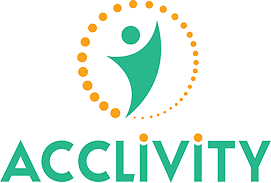In higher education, salary disparities among faculty members are unfortunately common. However, for Native women and other women of color in academia, this inequality is often even more pronounced. Studies have shown that Native women, Black women, and Latina faculty frequently earn significantly less than their male counterparts and even less than their white female colleagues.
Let’s explore the challenges Native women face in achieving equal pay in higher education, and how all women in academia can benefit from strategic career coaching to empower their paths toward equity and advancement.
Understanding the Wage Gap
In academia, Native women are often underrepresented and undervalued, leading to substantial pay gaps. According to the American Association of University Women, Native women earn approximately $0.60 for every dollar their white male colleagues earn. In practical terms, this disparity translates to thousands of dollars annually and tens of thousands throughout a career, impacting financial security, retirement savings, and the ability to reinvest in their research.
The wage gap highlights not only racial and gender biases but also systemic issues within academia, including hiring discrimination, a lack of mentorship, and limited access to high-ranking administrative positions. This pay disparity is a complex problem that continues to impact Native women as well as women from other marginalized groups in their academic journeys.
Common Barriers to Equal Pay
Several factors contribute to the pay gap for Native women in higher education, and these are often shared by other women and minority faculty as well:
- Underrepresentation in Leadership: Native women, and women of color more broadly, are less likely to be found in tenured or administrative positions, which tend to be better compensated.
- Lack of Mentorship and Sponsorship: Mentorship and sponsorship are critical in navigating the career ladder. Many women, especially women of color, lack mentors who can advocate for pay raises, promotions, and research funding.
- Salary Negotiation Challenges: Salary negotiation can be challenging for Native women and other minority faculty members due to cultural factors, institutional biases, and insufficient knowledge about available pay scales.
Despite these barriers, career coaching offers a strategic avenue for overcoming these obstacles, enhancing visibility, and negotiating for equal pay.
How Career Coaching Empowers Academic Women
For women in academia who feel uncertain about their advancement opportunities or need support navigating complex institutional structures, career coaching provides crucial guidance. Here’s how career coaching can specifically benefit Native women and others seeking pay equity:
- Insight into Negotiation Strategies: Career coaches equip faculty with negotiation skills tailored to their institutions and personal strengths, helping them advocate for fair pay.
- Clarity on Professional Goals: Coaches work with academics to define their professional goals, identify promotion pathways, and create actionable steps toward achieving them.
- Support in Building a Network: Coaches assist in establishing a network of supportive colleagues and mentors, creating a foundation for future opportunities and connections that increase visibility within the academic community.
- Guidance on Administrative and Tenure Tracks: Understanding the tenure process and the steps to reach higher administrative roles is critical. Career coaches help academics navigate these paths, building confidence along the way.
Strategies for Native Women and All Women Seeking Pay Equity in Academia
Achieving pay equity requires a mix of strategic planning, advocacy, and support. Here are some actionable steps:
- Document Achievements and Contributions: Regularly tracking accomplishments can provide a strong foundation for negotiating promotions and pay raises.
- Engage in Transparent Conversations About Pay: To better understand the landscape, seek conversations with colleagues or mentors about pay scales, benefits, and promotion criteria.
- Develop Allies and Mentors: Identify mentors within and outside your institution who can support your advancement and act as sponsors for future opportunities.
- Invest in Career Coaching: Working with a career coach helps you identify specific areas to enhance your career, from leadership skills to promotion strategies.
The journey toward equal pay for Native women and all women in academia requires commitment, resources, and support. Career coaching can be invaluable in this process, offering the guidance and tools needed to advance and advocate for fair compensation in academia. By investing in these services, academics can proactively close the wage gap and establish a more equitable professional environment for future generations.
Take charge of your career today. Consider career coaching as a step toward achieving equal pay and advancing your academic journey. Contact us today to schedule a consultation.

